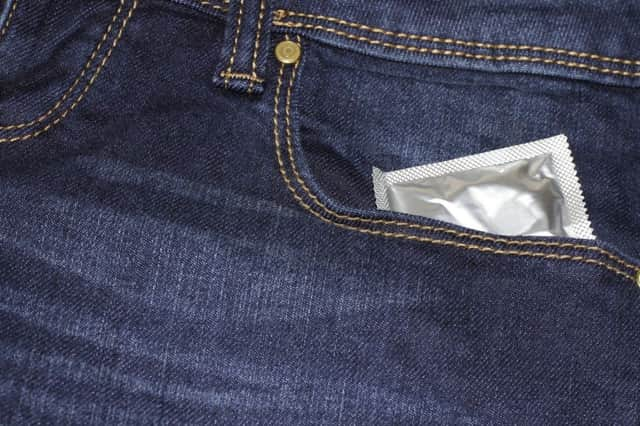New guidance for GPs on 12-year-olds with STDs


The NHS advice has been published on how to safely prescribe drugs to youngsters amid rising levels of STIs.
The guidance is the first of its kind in Scotland and has been issued by NHS sexual health experts to clinics and GP surgeries.
Advertisement
Hide AdAdvertisement
Hide AdIt follows a report last year that warned of an alarming rise in diseases among Scottish youngsters, spread by “casual unprotected sex”.
Drugs for common sex diseases are normally only recommended for adults, but doctors and nurses have now been told how to safely prescribe the treatments for 12-year-olds.
The move comes as cases of STIs caused by unprotected sex across Scotland are on the increase, with worrying outbreaks affecting underage teenagers in some parts of the country.
The advice has been published by the West of Scotland Sexual Health Managed Clinical Network, which issues guidance for doctors and nurses working in GP surgeries and family planning clinics.
Last night, a spokesman for the group said the aim was to ensure “consistent good practice” among doctors and nurses.
But family values campaigners are alarmed at the move.
The new protocol on STIs in young people states that treatments for youngsters can “differ” from adults. Although drugs should be prescribed along recommended guidelines, there are cases where youngsters need treatments not normally licensed for use in children.
Issues such as lower body weight and side effects can make it more difficult to prescribe certain drugs.
However, the guidance has been published to make doctors and nurses “justify and feel competent” handing out prescriptions, amid a rise in cases of chlamydia, herpes and gonorrhoea among youngsters in Scotland, and a recent outbreak of syphilis involving underage youngsters.
Advertisement
Hide AdAdvertisement
Hide AdThe network is also set to publish child protection guidelines for doctors on what to do when a youngster is diagnosed with an STI.
The move comes amid a soaring number of diseases spread by unprotected sex.
Last year the public health watchdog, Health Protection Scotland, warned that “young people are acquiring STIs at an early age” with “very large numbers affected, particularly in younger age groups… through casual unprotected sexual intercourse”.
One outbreak in the Lanarkshire area saw cases of syphilis rise among youngsters, prompting schools to hold information sessions warning pupils of the problem.
Across Scotland, cases of herpes among under 19-year-olds rose from 186 in 2003 to 405 in 2012. Over the same time, cases of chlamydia in the same age group rose from 4,066 to 5,562, whilst gonorrhea in under-25s rose from 363 to 1,019.
A spokesman for the West of Scotland Sexual Health Managed Clinical Network said: “A separate guideline for the 12 to 15-year-old group is necessary to allow clinicians to take account of potential child protection implications of a young person presenting with an STI, and also because on occasion the form of treatment may vary according to factors such as an individual’s body weight.”
However, Norman Wells, director of the Family Education Trust, said: “We cannot afford to be complacent about underage sexual activity and treat it as a legitimate lifestyle choice.”
Sarah Fowler, service manager at advisory service Brook Highland, said youngsters need to be told about the risks of STIs through sex education and clinics.
Advertisement
Hide AdAdvertisement
Hide AdShe said: “Young people need to be well informed about the risks of sexually transmitted infections, so that when they decide they are ready to become sexually active they can protect their sexual health.”